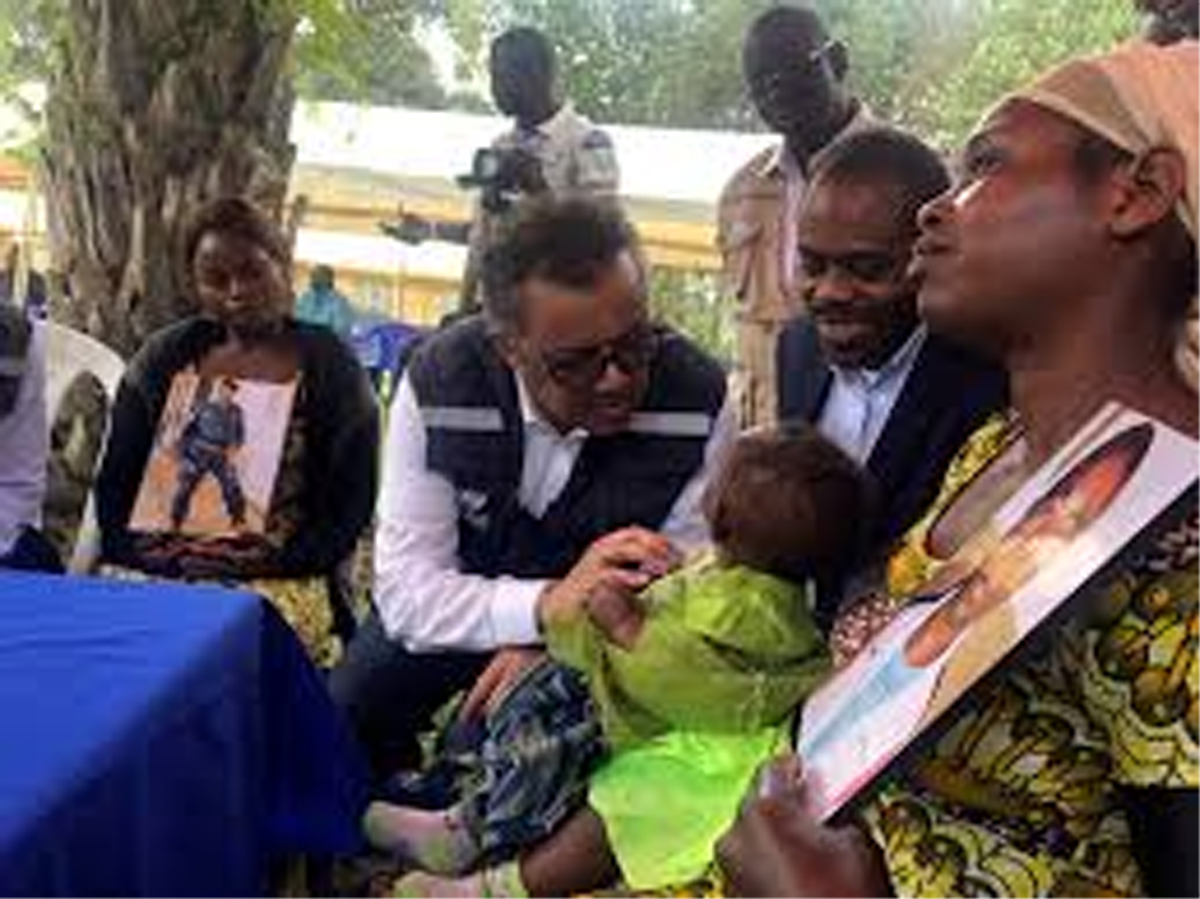UNITED NATIONS, Mar 11: The UN health chief visited an Ebola treatment center in the Democratic Republic of the Congo (DRC) after it had been attacked by militants, calling for protection of these centers amidst a deadly epidemic outbreak.
Just hours after the assault on Saturday, Tedros Adhanom Ghebreyesus, director-general of the World Health Organization (WHO) toured the center in the city of Butembo, which was also attacked last week, thanking personnel for their steadfast dedication.
“It breaks my heart to think of the health workers injured and police officer who died in today’s attack, as we continue to mourn those who died in previous attacks, while defending the right to health,” he was quoted by UN News as saying. “But we have no choice except to continue serving the people here, who are among the most vulnerable in the world.”
The visit came as he concluded a three-day mission to the DRC, along with other WHO leadership and senior US officials who met with the president, government officials, partner organizations and local responders involved in the outbreak response. He also spoke to a group of partners, officials and staff in Butembo.
“The people of Katwa and Butembo, as in the other communities affected by Ebola, want and deserve a place to receive care and a chance of survival,” he said. “They do not deserve to suffer in their homes while infecting their loved ones; they do not deserve to suffer in inadequately resourced health centers while infecting health workers.”
After careful negotiations, health workers have been allowed in the area permeated with dozens of armed groups, according to news reports. But attacks on treatment centers greatly hinder the ability to contain the virus, as fear pushes people to flee.
“WHO has requested and received further support from UN and local police forces to protect the treatment centers,” the WHO chief continued.
To conquer Ebola, he explained “we must strike a delicate balance between providing accessible care, maintaining the neutrality of the response, and protecting patients and staff from attacks by armed groups.”
Pointing out that “these are the dilemmas we face in conflict zones around the world,” he concluded by reiterating WHO’s commitment “to ending the outbreak” and “to improving the health of the people of DRC.” (AGENCIES)
&&&


